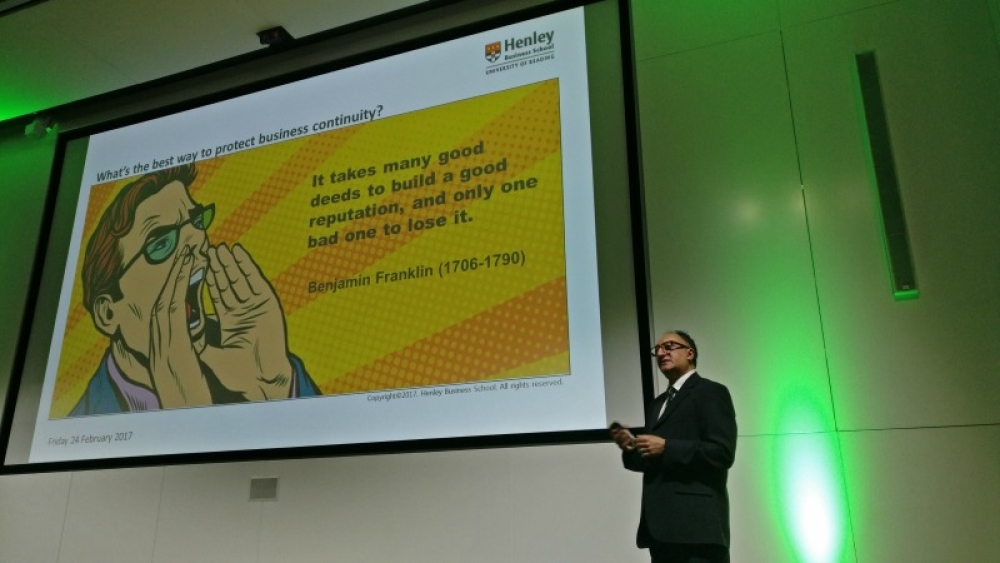DP2017: Henley Business School's Ardi Kolah
22 Feb 2017

Ardi Kolah is executive fellow and programme co-director at the Henley Business School, ranked in the top 50 business schools in the world. Ardi founded and is editor-in-chief of the Journal of Data Protection and Privacy and he created Henley’s GDPR Transition Programme.
Ardi Kolah, executive fellow and programme co-director at Henley Business School, took the stage at Data Protection 2017 to tell our attendees that focusing on reputation should come before simply trusting regulation.
This is particularly important for the social media world we live in, a world where the idea virus runs rampant, where information is shared readily and where marketers need to be bold to succeed.
Safe, Ardi told our crowd, isn’t an approach that will wash with today’s consumer, and differentiation can only come by speaking to consumers in new, innovative ways.
Permission marketing
Referring to Seth Godin’s book, Permission Marketing, Ardi told us that people can become friends, can become customers based on trust and permission – and that the GDPR itself is regulation based on the premise of best practice from the marketers it seeks to govern.
The marketing industry is on a compliance journey together with regulators and consumers, and there is huge value to be unlocked.
But the temptation to ruthlessly pursue the desire to just sell must be avoided. Single-minded acquisition can lead marketers to disaster, and the impacts can ruin that cornerstone of any business: reputation.
Big hacks, bad comebacks
To demonstrate how a lack of care for customers can cost any marketer, Ardi brought a few case studies to light. He pointed out how DailyMotion reacted to personal data hacks with a wave of the hand and a reminder to customers to just “reset passwords”. Not ideal. Where is the care for the consumer? And where is there an understanding of the value of data and personal information?
We also heard about the Sports Direct hack, hidden by the organisation, in the same way that Yahoo! hid the huge 2013 hack of over a billion accounts and consumers’ personal details.
All these instances show us, Ardi argued, that companies need to address their vulnerabilities honestly not just to protect consumers, but to protect their own reputations.
Prepare, plan, train
How we prepare, plan and train for this kind of protection of data is key says Ardi. And a key driver for this must be the recognition that it is the consumers themselves that demand these standards of us.
The key question today’s consumer asks of the brands they interact with is: can I trust you? With such an emotive query, it isn’t enough to say “well trust regulation”.
Companies must be the best they can be, says Ardi, and take ownership of and be responsible for actions, and of course, reputation. What will make the difference for savvy marketers says Ardi is an adherence to the principle of proactive responsibility and compliance.
Don’t just lean on the rules, however robust they may be. Your consumers want to see you doing the right thing because it is the right thing to do.
Please login to comment.
Comments